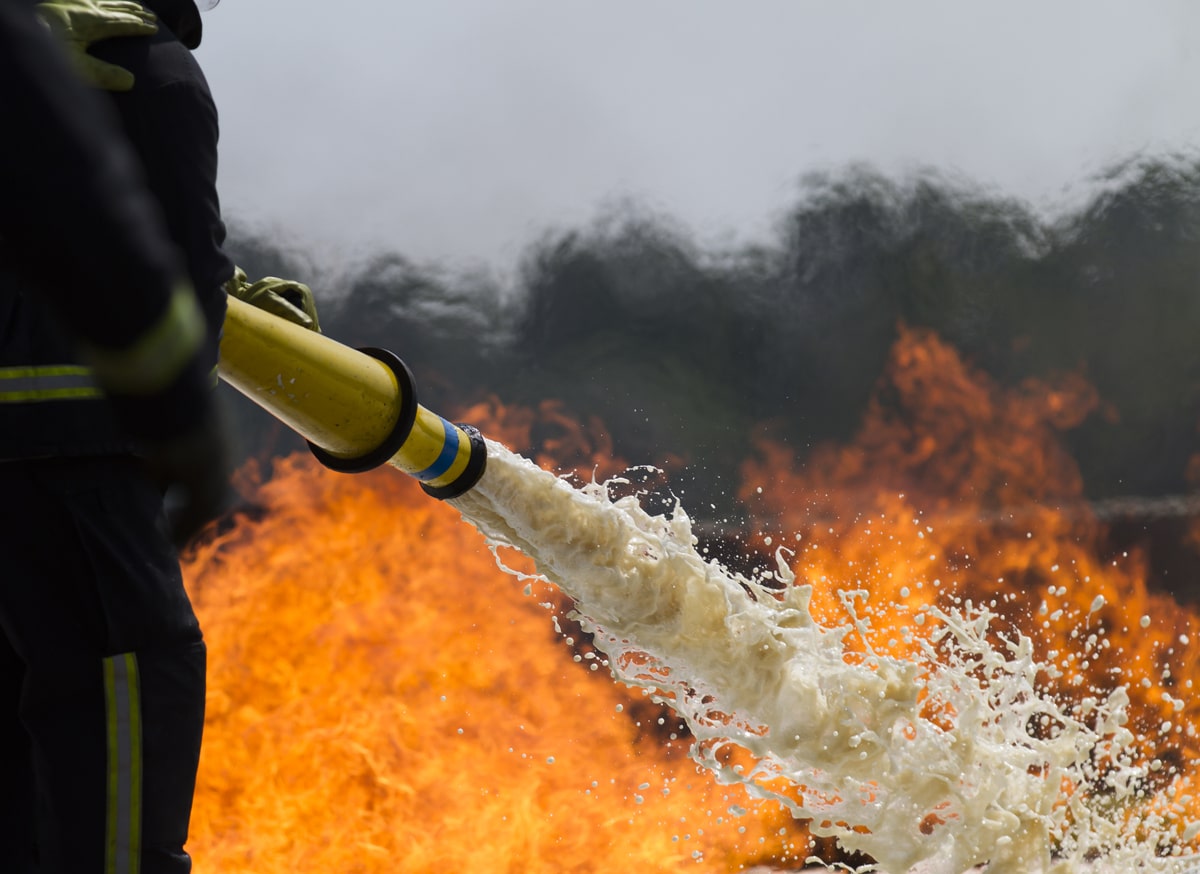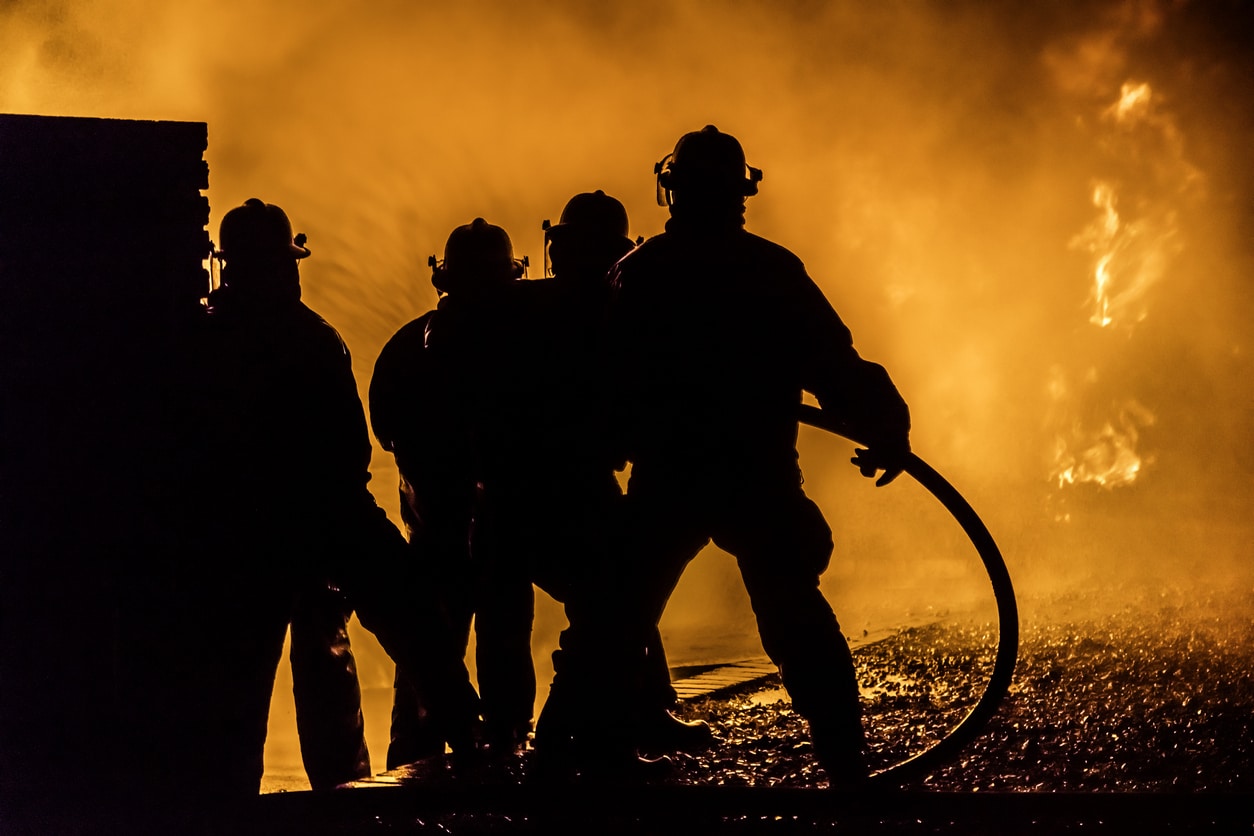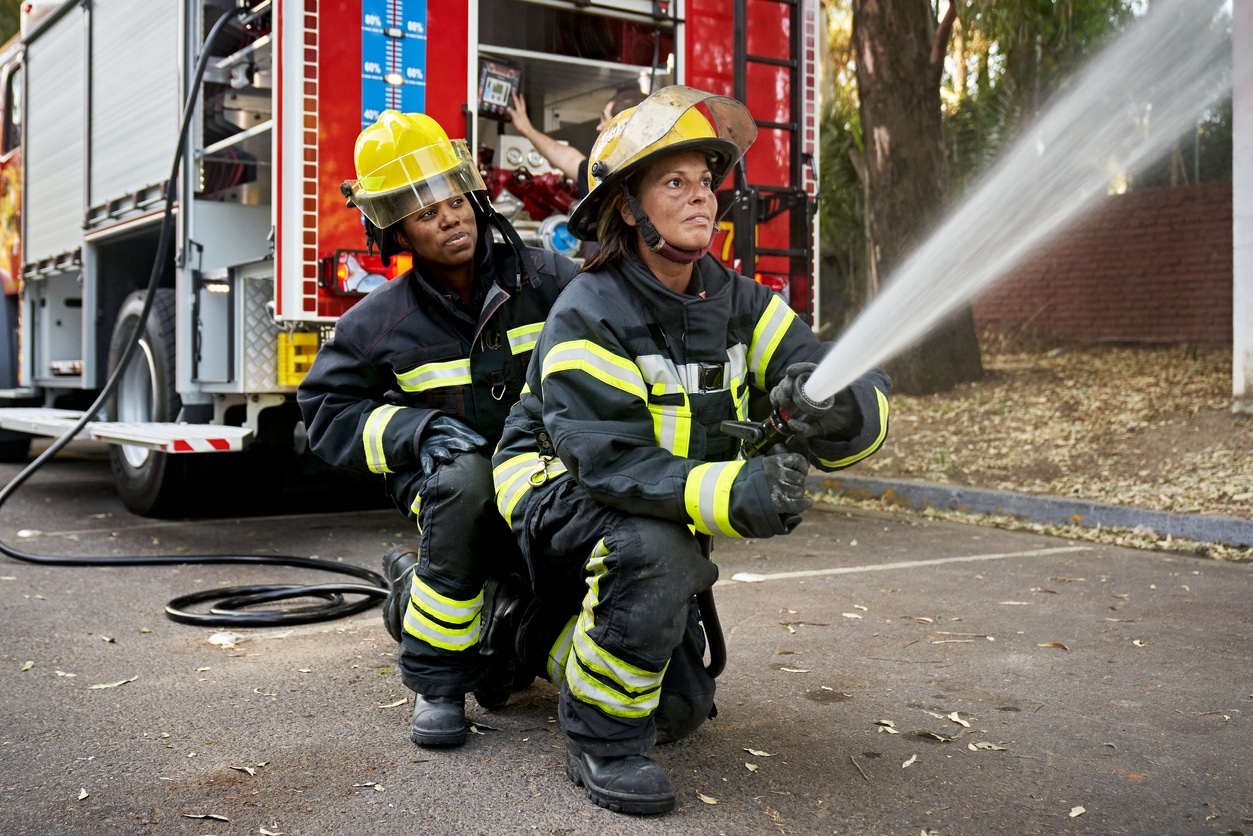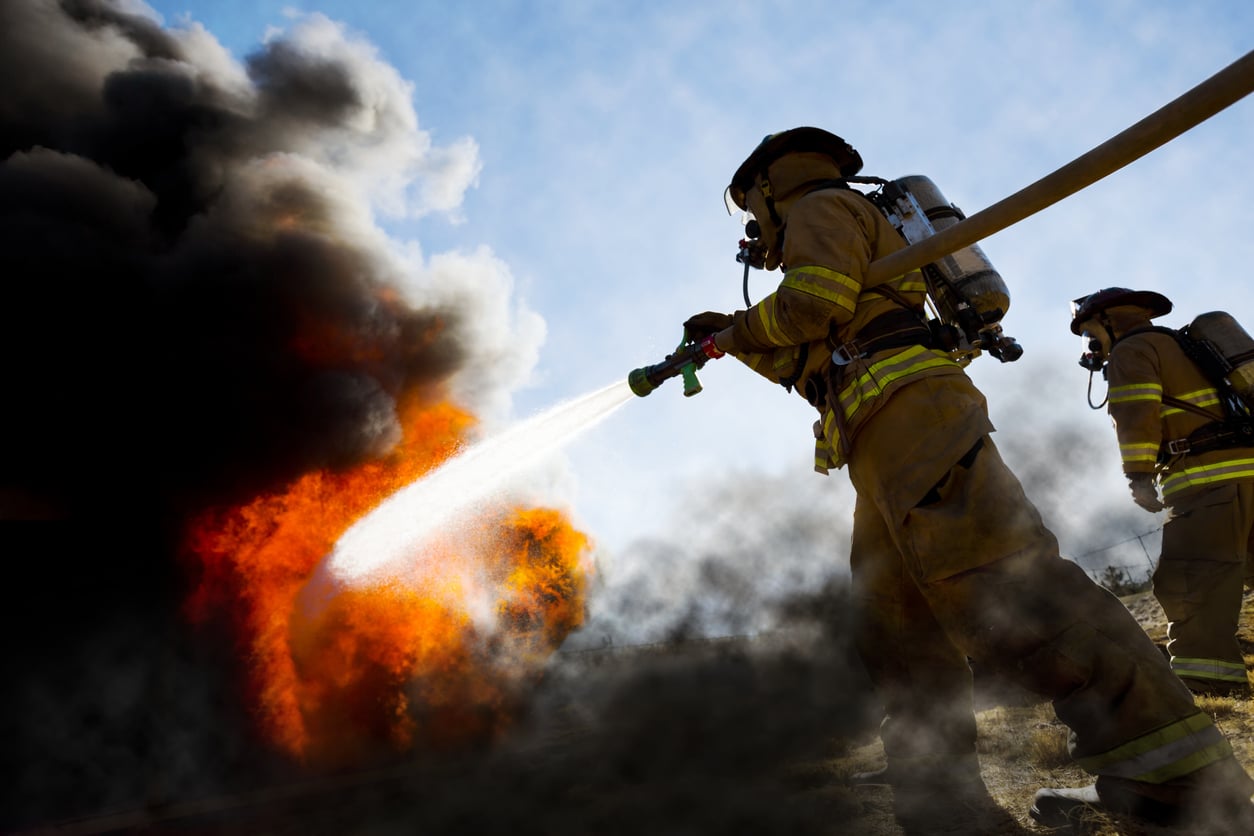AFFF Firefighting Foam Lawsuit Overview
AFFF (aqueous film-forming foam) lawsuits target manufacturers for producing firefighting foam containing PFAS chemicals linked to serious health conditions.
Over 9,500 cases are currently pending in multidistrict litigation, with military personnel, firefighters, and nearby residents reporting cancer diagnoses after AFFF exposure.
The EPA and other agencies have confirmed the connection between these "forever chemicals" and multiple cancer types.
Latest AFFF Lawsuit 2026 Updates
- June 2025 – More than 9,300 AFFF personal injury cases are now part of the ongoing multidistrict litigation (MDL) in the U.S. District Court for the District of South Carolina [1]. A bellwether trial is scheduled for October 6, 2025, which will significantly influence future settlement negotiations.
- March 18, 2025 – The Lawsuit Information Center provides a comprehensive overview of ongoing AFFF firefighting foam lawsuits, detailing the health risks linked to PFAS chemicals and the legal actions pursued against manufacturers for environmental contamination and associated health issues [2].
- 2023 – Johnson Controls entity Tyco Fire Products LP agreed to pay $17.5 million to resolve claims from hundreds of homeowners in Peshtigo, Wisconsin, that their water was contaminated by AFFF firefighting foam. The settlement included $15 million for property damage claims and $2.5 million for plaintiffs alleging injuries, including kidney and testicular cancer [3].
- 2019 – New Jersey filed a lawsuit against AFFF manufacturers for knowingly producing and selling toxic firefighting foam products for decades. The lawsuit asserts both environmental and consumer fraud claims against corporations that manufactured and sold AFFF products containing PFOA and PFOS chemicals despite awareness of their health and environmental risks [4].
- July 1, 2018 – Washington state banned the use of firefighting agents containing PFAS for training purposes and prohibited the manufacture, sale, or distribution of such foams starting July 1, 2020, with exemptions for certain uses (e.g., military, FAA-certified airports), setting a precedent for other states [5].
FDA Reports and Statistics
The Department of Defense has identified over 400 military sites that are potentially contaminated with PFAS chemicals from AFFF firefighting foam.
These "forever chemicals" have been detected in groundwater and drinking water systems across the country.
According to a 2021 study published in the International Journal of Environment Research and Public Health, aqueous film-forming foam (AFFF) contains toxic PFOS and PFAS chemicals that have been linked to various health conditions, including an elevated risk of cancer and stunted growth in children [6].
Forever Chemicals' in Over 500 N.J. Water Systems and Sources – More Than 1,000 Contamination Sites Nationwide - David Andrews Ph.D., Senior Scientist from Environmental Working Group.
The Environmental Working Group reported that PFAS contamination has been found in over 500 water systems in New Jersey alone, with more than 1,000 contamination sites nationwide.
AFFF Injuries & Side Effects
The health risks associated with AFFF exposure are significant and well-documented. Studies indicate individuals with the highest levels of PFAS in their blood are over twice as likely to develop kidney cancer compared to those with lower levels.
Confirmed Cancer Risks:
- Kidney Cancer: Studies show individuals with high PFAS levels have over twice the risk of developing kidney cancer.
- Testicular Cancer: Higher incidence among military and firefighting personnel exposed to PFAS.
- Pancreatic Cancer: PFOA exposure linked to changes in pancreatic tissue promoting cancer development.
Additional Health Risks:
- Bladder Cancer: Elevated risk due to PFAS accumulation.
- Breast Cancer: Potential link between PFAS exposure and increased risk.
- Leukemia: Higher rates among firefighters with PFAS exposure.
- Lymphoma: Non-Hodgkin's lymphoma noted in occupational settings.
- Neuroendocrine Tumors: Possible connection to PFAS exposure.
- Prostate Cancer: Elevated risk for men exposed to AFFF.
- Colorectal Cancer: Potential risk from ingesting contaminated water.
Do You Qualify for an AFFF Lawsuit?
You may qualify for an AFFF lawsuit if:
- You were exposed to AFFF firefighting foam through your occupation or residence
- You have been diagnosed with kidney cancer, testicular cancer, pancreatic cancer, or other related conditions
- Your exposure occurred at a military installation, airport, or firefighter training facility
- You can document your exposure history and medical diagnosis
High-Risk Occupations:
- Active Firefighters: Regular users of AFFF in emergency situations and training.
- Military Firefighters: Utilized AFFF since the 1960s at military bases.
- Airport Personnel: Required to use AFFF until FAA regulations changed in 2018.
- Training Facility Staff: Exposed during exercises using AFFF.
High-Risk Locations:
- Military Bases: Over 400 installations with documented AFFF use
- Airports: Mandated AFFF use until 2018
- Training Facilities: Sites of repeated AFFF application
- Communities Near Usage Sites: Potential water contamination from PFAS
Evidence Required for an AFFF Lawsuit
To build a strong case for your AFFF lawsuit, you should:
- Document Your Exposure History: Record key details about dates, locations, and circumstances of AFFF use.
- Collect Medical Records: Gather all relevant diagnoses, treatments, lab results, and doctor's notes.
- Obtain Water Testing Results: If applicable, test for PFAS contamination in your water supply.
- Secure Service Records: Collect firefighter or military service documentation, including employment history and training logs,
Damages You Can Recover
Monetary damages from AFFF lawsuits may include:
- Medical Expenses: Coverage for past and ongoing treatments, surgeries, or hospitalizations.
- Lost Income: Compensation for missed work due to illness or recovery.
- Future Earnings: Recovery for lost earning potential caused by permanent disability.
- Pain and Suffering: Damages for the emotional and physical toll of AFFF-related conditions.
- Loss of Consortium: Compensation for the impact on family relationships.
AFFF Compensation Amounts
Compensation for health conditions caused by AFFF exposure varies based on the severity of the injuries:
- Severe Health Conditions: Settlements for serious cases, such as kidney or pancreatic cancer, may range from $200,000 to $500,000.
- Moderate Health Conditions: Compensation for conditions like testicular cancer or liver damage might fall between $150,000 and $280,000.
- Less Severe Cases: Individuals with less critical health effects could receive up to $75,000 payouts.
Related: Firefighter Foam Settlements
Is Aqueous Film Forming Foam Still Used?
Unfortunately, toxic PFAS-based firefighting foam is still being used at various airports across the country, for both military and commercial purposes.
However, the Department of Defense is researching safe PFAS-free foam alternatives and has limited the use of AFFF to emergency responses.
The FAA no longer requires airports to use PFAS-containing foam as of 2018, leading to a gradual transition to safer alternatives.
Related: DuPont AFFF Lawsuit
Statute of Limitations for AFFF Lawsuits
Time limits for filing an AFFF lawsuit vary by state, typically ranging from 1-6 years from the date of diagnosis or discovery of the connection between AFFF exposure and your health condition.
Due to these time constraints, it's crucial to consult with an attorney as soon as possible to protect your legal rights.
Given the complex nature of PFAS exposure cases, many states apply the "discovery rule," meaning the statute of limitations begins when you discovered or reasonably should have discovered that your injury was caused by AFFF exposure.
Related Articles:
FAQs
1. What Is the Issue With Firefighting Foam?
The issue with firefighting foam is that it contains PFAS, which can seep into groundwater and contaminate wells and drinking water supplies. This exposure poses health risks to firefighters and others who come into contact with the contaminated water.
2. Who Can File a Lawsuit Related to Firefighter Foam Contamination?
Individuals who have been exposed to PFAS through firefighter foam, including firefighters, their families, and residents of affected areas, can file a lawsuit if they have experienced health issues or property damage related to the contamination.
3. What Health Issues Are Associated With Exposure to PFAS From Firefighter Foam?
Health issues associated with exposure to PFAS from firefighter foam include cancer, liver damage, immune system suppression, and thyroid disease. Firefighters and communities near contaminated sites are particularly at risk.
4. How Can PFAS Contamination Occur From Firefighter Foam?
PFAS contamination can occur from fighter foam when it is used in training exercises or fire extinguishing efforts, as well as from spills and improper disposal. The chemicals can leach into the soil and groundwater, spreading to drinking water supplies.
5. Have There Been Any Settlements in AFFF Lawsuits?
Yes, there have been settlements, including a recent $17.5 million settlement in Wisconsin. This included $15 million for property damage and $2.5 million for personal injury claims related to AFFF contamination.
6. Which Companies Manufactured AFFF?
Major manufacturers of AFFF include 3M Company, DuPont, Tyco Fire Products, Chemguard, Buckeye Fire Equipment, and National Foam. These companies are named in various lawsuits for allegedly knowing about the risks but continuing to sell the products.
7. How Long Do I Have to File an AFFF Lawsuit?
The time limit varies by state but typically ranges from 1-6 years from when you discovered your injury was related to AFFF exposure. Consulting with an attorney promptly is essential to avoid missing these deadlines.
8. What Compensation Might I Receive From an AFFF Lawsuit?
Compensation may include coverage for medical expenses, lost wages, pain and suffering, and other damages. Settlements for serious cases such as kidney cancer may range from $200,000 to $500,000, depending on case specifics.
See the other related toxic tort lawsuits we've taken on.
Get Your Free AFFF Firefighting Foam Lawsuit Evaluation From Our Lawyers
Time is limited to pursue legal action for AFFF exposure. Many states have strict statutes of limitations that may bar your claim if not filed promptly. The complex nature of these cases requires immediate attention from experienced legal counsel.
Our at Schmidt & Clark, LLP services include:
- Free, confidential case evaluations
- No upfront costs or fees
- Payment only if we win your case
- Experienced representation in MDL litigation
The AFFF litigation is actively progressing, with bellwether trials scheduled and settlements being negotiated. Don't miss your opportunity to seek justice and compensation for your injuries.
References:
- https://lawsuitlegalnews.com/aqueous-film-forming-foam-afff-lawsuits/
- https://www.lawsuit-information-center.com/afff-firefighting-foam-lawsuit.html
- https://www.thewaterreport.com/tyco-settles-pfas-contamination-lawsuit-with-water-suppliers-for-750-million/
- https://www.nj.gov/dep/newsrel/2019/19_0514b.htm#:~:text=McCabe%2C%20and%20Acting%20Division%20of,harmful%20chemicals%20into%20the%20environment.
- https://toxicfreefuture.org/press-room/washington-state-house-approves-ban-nonstick-pfas-chemicals-firefighting-foam/
- https://www.ncbi.nlm.nih.gov/pmc/articles/PMC8583519/

 Published by
Published by 


